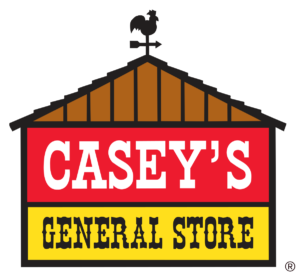
Bex Streeper
Bex Streeper is an HR process analyst at Casey’s General Stores, Inc., in Des Moines. Prior to that, she spent 12 years at MidAmerican Energy Company, where she performed a variety of roles in business and technology analysis. She recently earned her bachelor’s degree in organizational studies from the University of Iowa.
What has your background been in the Iowa tech industry? How have you seen the industry evolve?
I moved here from Chicago with my husband in 2005 and worked for MidAmerican Energy in their IT group. I started out at their Technology Resource Center, and moved to HR in 2008, as a training analyst. I was a system admin and a project manager for our corporate-wide training plan. So I was in that role for about two years, moved over to HRIS [human resources information systems], then moved back to IT in 2017. I was an Oracle business intelligence analyst at MidAmerican through 2018, and then I made my way to Casey’s as an HRIS analyst.
I seem to always come back to IT. I love helping people and discovering ways that I can help them become more effective and efficient with technology. Another huge passion of mine is diversity and inclusion, and as I build talent pipelines I’m always keeping in mind, How can we diversify our talent?
We’ve had some shifts at Casey’s — we have a new CEO and a new chief HR officer. It’s fantastic. And within my team, I’m always tapped for, “Hey, let’s have Bex come up with X.” I’m usually considering, how can we pull people together and get organized?
What is your role at Casey’s? What would you say the most significant change you’ve seen in regards to diversity and inclusion being a priority?
In my current position at Casey’s, I provide support for the implementation of projects and initiatives related to the Human Resources Department, such as coordinating an HR helpline implementation.

In my experience at Casey’s, diversity and inclusion is a priority. But then it’s also equity, too. You can try to diversify your organization, but you have to make people feel like they have a seat at the table. We have a diverse leadership team, including our CEO – Darren Rebelez. I think Casey’s continues to increase the focus on diversity and inclusion amongst our team members.
When I first landed in the Des Moines area in 2005, I was like, “Wow.” We were coming from a city that’s very diverse. My first five years here were hard, just because it was a big change for me. But you see the change within the community. Now it’s a priority for companies; they know it’s an issue, and they push for it.
In terms of strengthening the workforce in Iowa, and talent development, what are some tried-and-true HR processes that you feel are translatable to all companies? Can you elaborate on what you’ve been able to take with you to each position and grow on it?
As far as processes go, and definitely with leading change, you need to have open communication. You have to be totally transparent. In any role I’ve gone into, when I work with end-users or stakeholders, I want to make sure that I understand where they’re coming from and what they’re trying to accomplish, and then also keep them tuned in with what’s going on.
Also, having a strong customer focus. I love how MidAmerican is obsessively dedicated to their customers. Casey’s hyper focuses on their guests, too, but is also focused internally as well. That’s something that was really well communicated at MidAmerican, where we have our external customers but we also are internal customers as well. By holding that mindset close and keeping folks in the loop on changes, you eliminate any potential for upsetting someone. Because things might happen with a project — there might be another fire that you need to tend to, or maybe you just have to say no to something. But as long as you’ve had that open communication, keeping an understanding of priorities and goals, there’s little issue for any difficulties with the stakeholders. I think whole honesty is the best process. I can’t call it a process, but I think it always helps anywhere I end up going.
In my experience at Casey’s, diversity and inclusion is a priority. But then it’s also equity, too. You can try to diversify your organization, but you have to make people feel like they have a seat at the table.
What was your passion growing up? What did you envision for your career?
At one point I wanted to go into medicine. However, my parents passed away early — my dad had colon cancer when I was 12, and my mom passed when I was 18. That first year of college I was dealing with my mom, and studying medical terminology, and I dabbled in a lot of technology. In Illinois, you have to take some technology courses as well as poli sci and stuff like that. I’d always had an interest in technology, so I’m like, “I think I’m going to go into IT.” I received my MCSA [Microsoft Certified Systems Administrator certification] and worked at a hospital — Evanston Northwestern Healthcare.
When I came to Iowa, I was craving interaction and wanted to know how I could help people. As a kid, looking back, I think I wanted to go into medicine because I wanted to help people. So I’m essentially doing what I wanted to do but in a different sort of way.
How do you share your time and talents outside of Casey’s?
I’m currently on the board of the Central Iowa SHRM’s [Society for Human Resource Management] VP elect Workforce Readiness Committee. And I recently joined Opportunity on Deck as a board member. I also just finished my bachelor’s degree at the University of Iowa. I have three children and a husband, so I’m volunteering on my daughter’s Girl Scout troop and doing a lot of cooking. But whenever I have the opportunity to help others, that’s where I’ve filled up that time. I’m just trying to be cognizant because at one point in 2019 I was taking four classes, working full-time, and raising a family.
Tell me about mentors you’ve had and how they’ve influenced you and your career.
I had a professor at DMACC, Jim Hogan, who has been a mentor for a very long time. He’s who I rely on for leadership mentorship and closing those skill gaps I don’t know about until I meet with him. We used to meet once a month, but now that’s changed a bit. He’s a great sounding board. He never tells me what I should do, and I think that’s key, to listen and ask questions, like, “If you do that, what do you think will happen?”
I also meet with Rona Berinobis, vice president of inclusion and organizational development at Wellmark] at least quarterly to talk through things, and she is a phenomenal leader. Unfortunately, there are not many female leaders in general, and especially female leaders who are women of color. She’s always willing to send the elevator back down and answer questions; she’s very caring.
Ryan Schaap from Wells Enterprise is another. I worked with him at MidAmerican, and after I graduated I reached out to him, like, “I’m trying to plan my next step, and I’m thinking, Do I get another certification? Do I go for my MBA? What would you recommend, as a great leader in IT?” He’s phenomenal and so easy to speak to. Even though I’m no longer at MidAmerican, I can still send an email and he’ll get me on his calendar. And that’s a nice thing about Central Iowa — you can always reach out to people here. And for the most part, they could be a CEO and they will have coffee with you.
I’m always encouraging people to have a mentor. It doesn’t matter if you’re 70 years old — there’s always someone out there who has had an experience or can share knowledge with you.
What advice would you give to a young person considering a tech career?
I think the biggest thing is that you don’t have to only think about Google or Microsoft or whatnot. There are exciting tech opportunities within any organization, and you don’t always have to be a programmer. You don’t always have to be the hardware person. You find your niche, what you’re comfortable with, and think outside that box. Like for myself, I’m realizing that I’m a collaborator. So working as a BA, or a project manager or something along those lines has different applications for technology. There are other capacities where you can navigate your career if you’re interested.
There are exciting tech opportunities within any organization, and you don’t always have to be a programmer. You don’t always have to be the hardware person. You find your niche, what you’re comfortable with, and think outside that box.
Being a Catalyst is about supporting diversity, inclusion, and belonging in technology. Why is it important from your perspective to have people of different backgrounds in tech?
For me, I think it’s that you have different ideas. You bring different perspectives. Growing up as a female, my experiences are different than my husband’s, and I see needs that are different than his. And then adding in that perspective of being a Latina or another ethnicity can speak to different experiences, too. And I think that’s the biggest thing with diversity and inclusion, where you have that diversity of thought. It’s not just race or gender; it’s the thought process, too. And I think it’s necessary because you’re going to have a greater depth of ideas. So it’s not just assuming, “OK, this is what will work for me and my tech background,” but really taking into consideration that there’s someone out there who might not have the same background as you and might be struggling. For example, as we’re dealing with coronavirus, there are kids who have a level playing field when they go to school because they’ve had all the same technology. But they might not have the internet or a computer at home, right? So we start talking about that. I think that’s important.
As you look to the future, how would you like to see Iowa technology grow workforce and talent development?
I think we have great companies coming to Iowa. I mean, it’s becoming the Silicon Valley in the Midwest, right? And it’s fantastic. I think we could encourage more talent to move here that is a little more diverse, and the greater Des Moines partnership has done a phenomenal job with that. I participate in their multicultural reception every quarter, and I’ve seen huge changes from when I first moved here. But we definitely need to continue that effort, of doing a lot more along the lines of outreach for recruiting people.
I know the big thing is to try to retain our younger professionals but also encourage more diversity. When we talk about diversity, we also need to make sure that the environment is right. Because you can invite all these people, but you have to make sure that they feel included. There’s that great quote: “Diversity is being invited to the party; inclusion is being asked to dance.”
Quality companies like Google, Facebook, and Apple are coming to Central Iowa, and it’s definitely getting people excited. And we’re so Iowa nice. I think if we can continue to develop, bringing these companies in, but also looking for that diversity as well, it would be key. And I think people are seeing how the cost of living is phenomenal, people are great, and there are great job opportunities. The opportunities are endless here in Iowa.

When we talk about diversity, we also need to make sure that the environment is right. Because you can invite all these people, but you have to make sure that they feel included. There’s that great quote: “Diversity is being invited to the party; inclusion is being asked to dance."

